Rosehip cider with honey, lemon and mint
Rosehip cider: boosts immunity naturally
Rosehip cider or rosehip juice obtained at cold, through mild fermentation, is an excellent tonic, energizing for the body, especially during the winter, helping to prevent colds and flu by increasing the body's immunity. It is also a blood detoxifier, having a hepatoprotective role, helps the circulatory system, reduces the level of bad cholesterol. supports the digestive system, fights anemia and helps the collagen secretion process.
Servings: 25 servings
~5 liters of rosehip cider = ~25 portions (1 portion = ~200 ml)
Ingredients
Materials
- - 5 liter jar
- - glass containers
- - blender / mixer
- - sieve, cheesecloth
Preparation
 Prepare the ingredients and a 5 liter jar.
Prepare the ingredients and a 5 liter jar.
Rose hips will wash in several waters.
Fill the jar halfway with water. Squeeze the lemon. If you have organic lemons, you can also slice the peel and add it to the jar.
Squeeze the lemon. If you have organic lemons, you can also slice the peel and add it to the jar. Pour the lemon juice over the honey and mix well until homogenized (the honey will become much more fluid).
Pour the lemon juice over the honey and mix well until homogenized (the honey will become much more fluid).
Optional: If the lemon is organic, cut the lemon zest into ~5mm slices and add to the jar. Pour the honey-lemon mixture into the half-filled jar with water and mix well with a wooden spoon until smooth.
Pour the honey-lemon mixture into the half-filled jar with water and mix well with a wooden spoon until smooth. Grind the rosehips with a blender: put the rosehips in the blender cup, add a little water and blend for ~30 seconds. Depending on the size of the blender, we will shred the rose hips in one or more installments.
Grind the rosehips with a blender: put the rosehips in the blender cup, add a little water and blend for ~30 seconds. Depending on the size of the blender, we will shred the rose hips in one or more installments. Pour the chopped rosehip paste (with seeds) into the jar and mix well.
Pour the chopped rosehip paste (with seeds) into the jar and mix well. Add the mint leaves and mix.
Add the mint leaves and mix. Add water until the jar is full and mix well.
Add water until the jar is full and mix well. We cover the jar with a food film, in which we make a few holes with the tip of a knife.
We cover the jar with a food film, in which we make a few holes with the tip of a knife.
⚠ The jar will not seal tightly, because the mixture will ferment.
You can also put a lid without closing it tightly, or even cheesecloth, so that when the mixture boils, the gases have somewhere to escape.
It would be ideal if you could find a fermentation system (fermentation plug), like the one used in wine damingens. It will be left to ferment/macerate for a minimum of 3 days for a non-alcoholic soft drink.
It will be left to ferment/macerate for a minimum of 3 days for a non-alcoholic soft drink.
→ To obtain a low-alcohol drink (rosehip cider), it is left to ferment for 3 weeks. Fermentation will take place at room temperature (~20 degrees C).
→ The fermentation time can be up to 8 weeks, but you will get an alcoholic drink, basically rosehip wine.
⚠ It is recommended to stir/shake daily with a long, wooden spoon, as the boiling process will push the crushed rosehips to the surface of the jar. After the fermentation period the liquid is filtered / strained with the help of a sieve or cheesecloth. It is put in bottles and stored cold in the refrigerator.
After the fermentation period the liquid is filtered / strained with the help of a sieve or cheesecloth. It is put in bottles and stored cold in the refrigerator.
Administration
→ Se recomandă consumul a câte o cană (~200 - 250 ml) de cidru/suc de măceșe de 3 ori pe zi, preferabil cu 30 de minute înaintea meselor.
► Pentru varianta alcoolizată
→ Pentru o persoană sănătoasă, fără restricții la alcool, se recomandă 1 - 2 pahare / zi, înaintea meselor.
→ Cidrul sau vinul de măceșe (varianta alcoolizată) poate fi consumat și fiert, extraordinar de bun în cazul răcelilor.
⚠ Pentru cei cu probleme de stomac, consumați doar după masă, la cel puțin 30 de minute.
→ În cazul copiilor se va consuma doar în varianta nealcoolizată.
Observations
⚠ In our optional mixture you can add 1 tablespoon of apple cider vinegar (9 degrees).
⚠ Fermentation time can be from a minimum of 24 hours to 3 weeks in general for a non-alcoholic or low-alcohol drink. The longer it is left, the more it will alcoholize. If left longer, it becomes rosehip wine.
To obtain an alcoholic drink (rosehip wine) the fermentation time is 6-8 weeks.
⚠ Check the alcohol level, to be sure you are not consuming an alcoholic product. In my case, after 3 days of fermentation, the alcohol level was zero.
Storage and validity:
→ It is recommended to store in glass containers, hermetically closed in cool, ventilated places and protected from light.
→ For the non-alcoholic or low-alcohol version (rosehip cider), it is recommended to keep it cold in the refrigerator and consume it as soon as possible, maximum 3 days after opening. If the bottle of cider is hermetically sealed, kept cold in the refrigerator and not walked on, it can be kept for up to 3 months.
Effects and benefits
- vitaminique, riche en vitamines C, B1, B2, B3, A, D, E, F, K, P, mais aussi en provitamine A ;
- minéralisant : zinc, magnésium, cuivre ;
- riche en acides essentiels ;
- riche en tanins et en acide malique ;
- tonique, énergisant ;
- stimule l'immunité ;
- prévient le rhume et la grippe ;
- prévient les infections respiratoires ;
- tonique pour le système circulatoire ;
- régule la tension artérielle ;
- réduit le mauvais cholestérol ;
- détoxifiant sanguin;
- excellent diurétique ;
- draineur / tonique hépatique ;
- riche en antioxydants : flavonoïdes, caroténoïdes, composés phénoliques ;
- anti-inflammatoire;
- réduit le taux sérique de protéine C-réactive et de créatinine;
- bon pour la mobilité articulaire ;
- antianémique ;
- aide à la sécrétion de collagène ;
- aide le système nerveux;
- stimule le métabolisme;
- soutient le système digestif;
- augmente l'appétit;
Side effects
- allergies, in the case of those allergic to the ingredients;
Contraindications
- contraindicated for those with irritable bowel problems
- contraindicated for people allergic to any of the ingredients
- the alcoholic version is contraindicated for those with alcohol restrictions (liver problems, ...)
FAQ 💡❓
What are the benefits of consuming rosehip cider with honey, lemon, and mint?
➡️ This natural cider has powerful revitalizing and antioxidant effects, supports the immune system, fights fatigue, improves digestion, and offers pleasant hydration with a refreshing aroma.
Why is rosehip cider considered a tonic for the body?
➡️ Rosehips are rich in vitamin C, polyphenols, and organic acids that stimulate cell regeneration, purify the blood, and support liver function, making this cider an excellent tonic during periods of effort or recovery.
Can this drink be a healthy alternative to soft drinks?
➡️ Yes, rosehip cider with honey, lemon, and mint is a natural beverage without additives or refined sugar, offering freshness and flavor without the negative effects of industrial sodas.
How is rosehip cider made at home?
➡️ Rosehips are macerated with honey, lemon, and mint leaves in cold water to preserve vitamins and enzymes, then left to ferment slightly in a cool place until it gains a mildly sour and sparkling taste.
How long should the cider ferment to get the ideal taste?
➡️ Natural fermentation usually takes between 2 and 4 days, depending on room temperature. The warmer the environment, the faster the process — but over-fermentation should be avoided.
What role does honey play in rosehip cider?
➡️ Honey not only naturally sweetens the drink but also provides beneficial enzymes, helping to balance fermentation and preserve the therapeutic properties of rosehips.
Why are mint and lemon added to this recipe?
➡️ Lemon enhances antioxidant and alkalizing effects, while mint adds freshness, soothes the stomach, and supports digestion — especially on hot days.
When and how should rosehip cider be consumed?
➡️ It can be enjoyed daily in moderate amounts — 100–200 ml in the morning or between meals. It’s a natural energizing drink, also suitable for detox programs.
Can children or the elderly drink this cider?
➡️ Yes, in small amounts and without prolonged fermentation. Lightly fermented cider contains a minimal natural alcohol content, so it should be adapted to age and health condition.
Are there any contraindications for this cider?
➡️ People with diabetes, acute gastritis, or honey allergies should avoid it or consult a doctor before consumption.
What side effects can occur from excessive consumption?
➡️ Excessive intake may cause mild digestive discomfort or increased acidity due to natural organic acids and fermentation.
Can rosehip cider be stored for a longer period?
➡️ Yes, if kept refrigerated in a tightly sealed bottle, it stays fresh for 5–7 days. Avoid heat exposure, which accelerates fermentation.
Can rosehip cider be used externally for cosmetic purposes?
➡️ Yes, due to its high antioxidant and vitamin C content, it can be used diluted as a natural facial toner or scalp revitalizer.
Does rosehip cider help regulate metabolism?
➡️ Yes, the combination of organic acids, honey, and lemon stimulates metabolism, promotes fat burning, and supports liver detoxification.
What is the difference between this cider and traditional rosehip tea?
➡️ Cider is a “living” drink, obtained through cold maceration and fermentation, preserving enzymes and vitamin C, while tea is heat-prepared, losing part of these beneficial compounds.


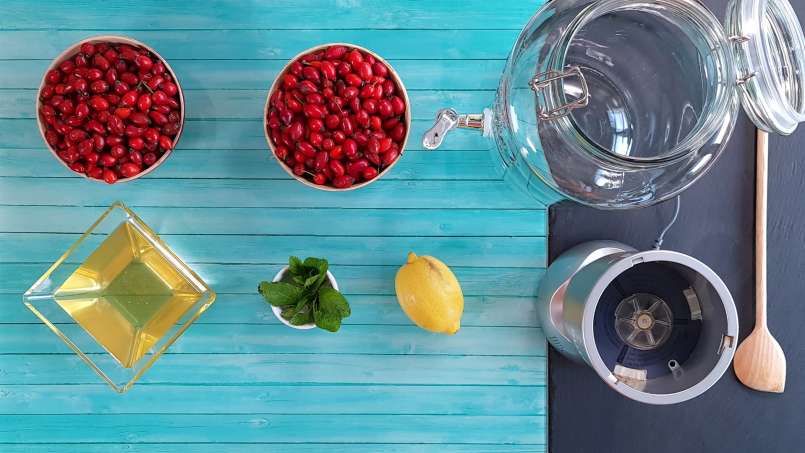
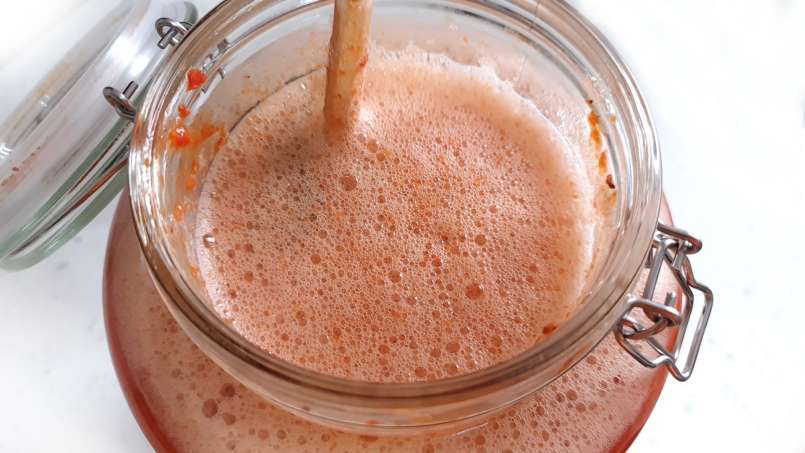
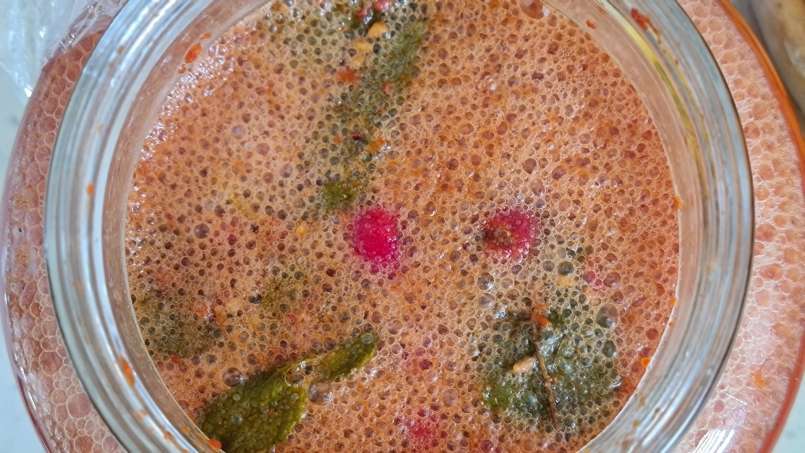
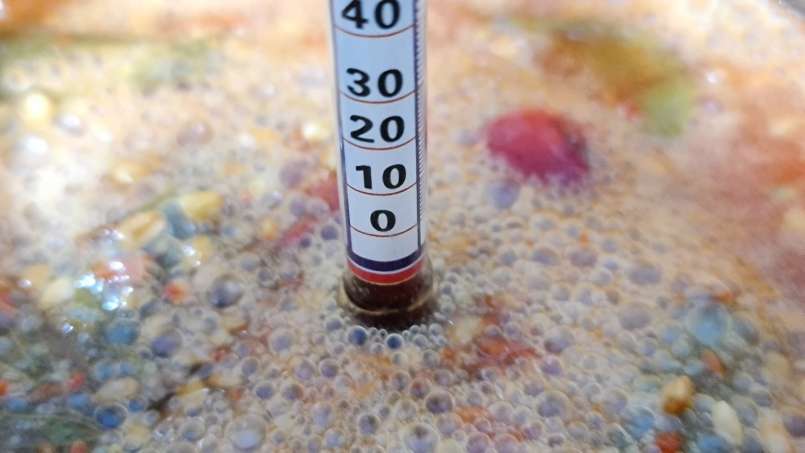
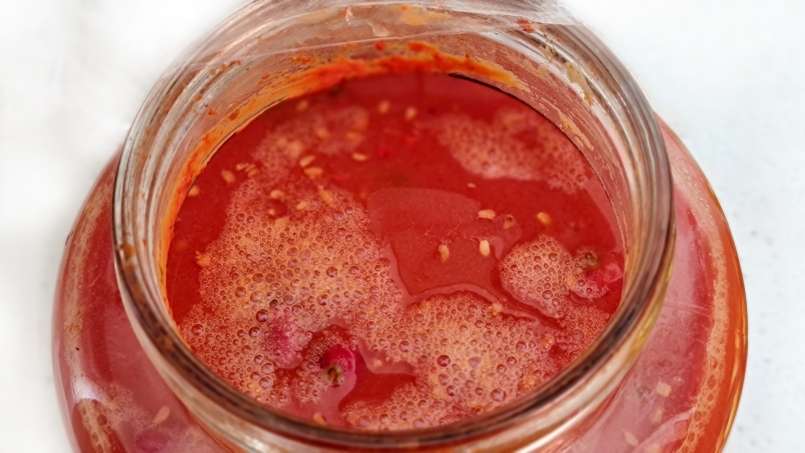
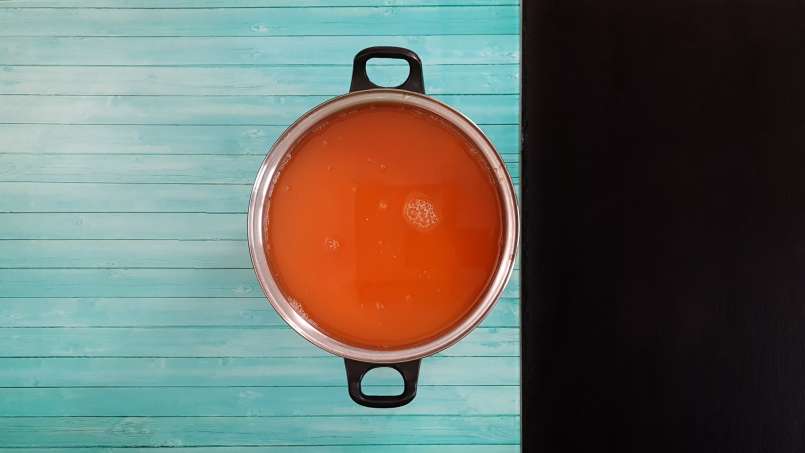
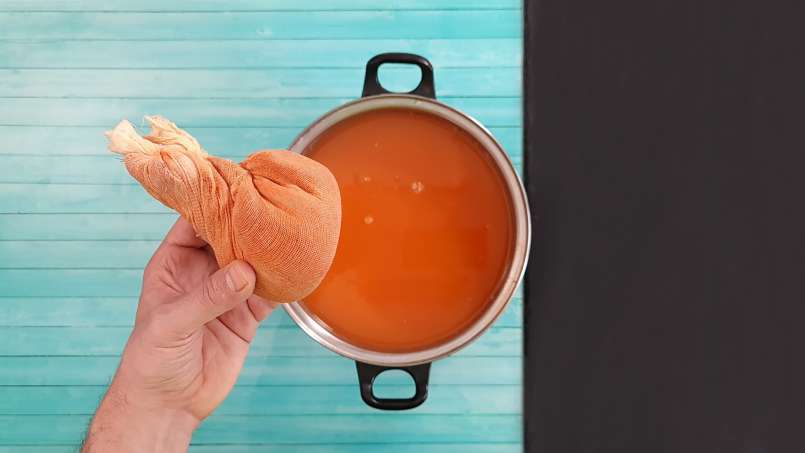
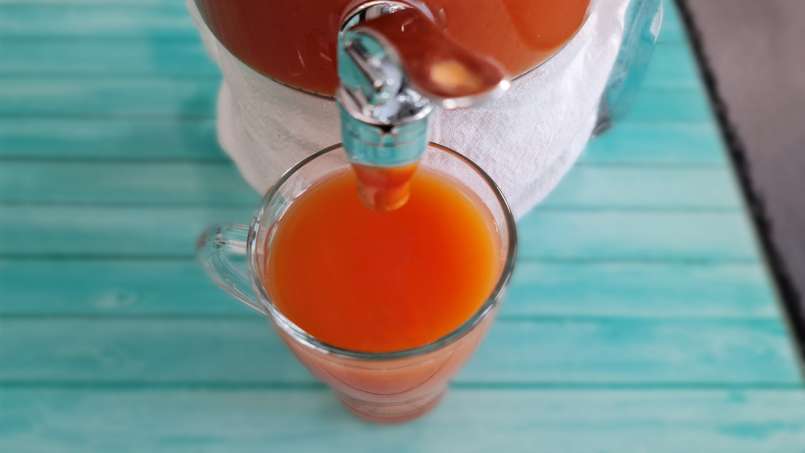
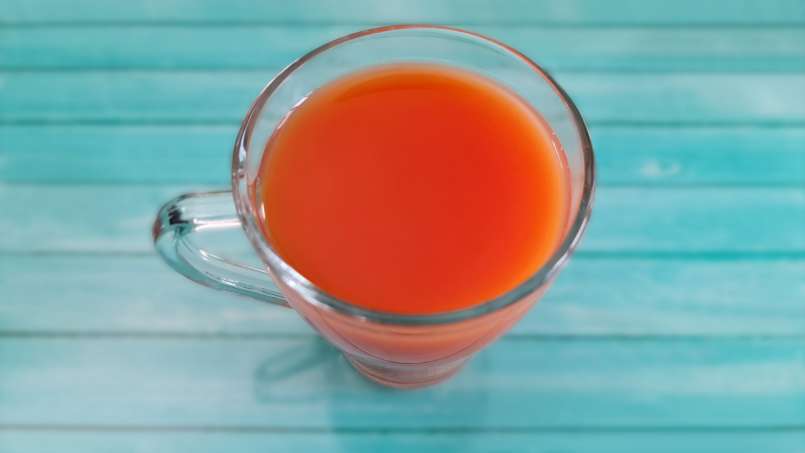
Comments